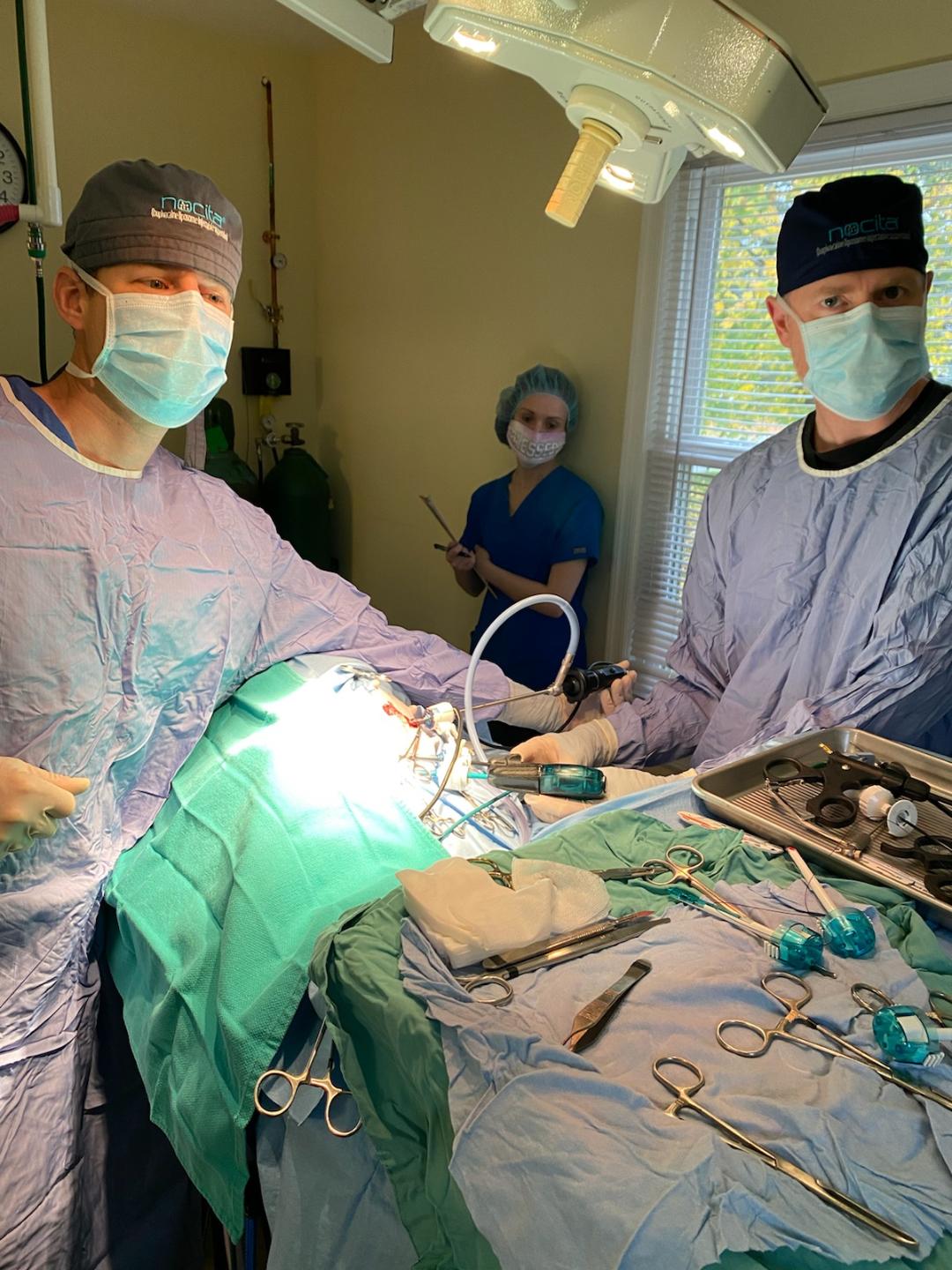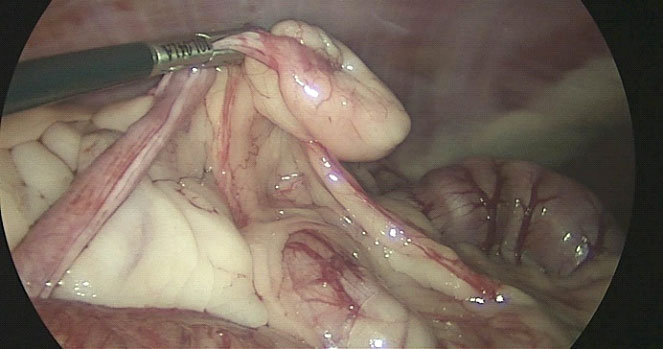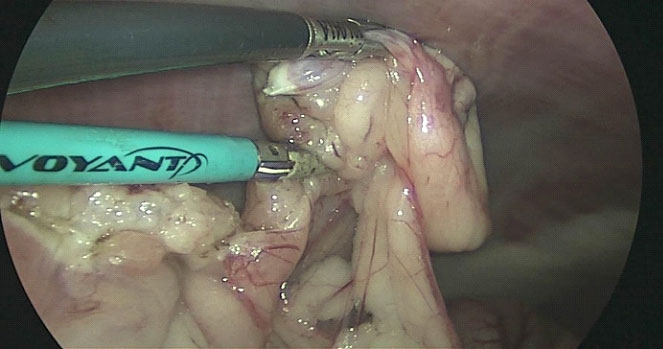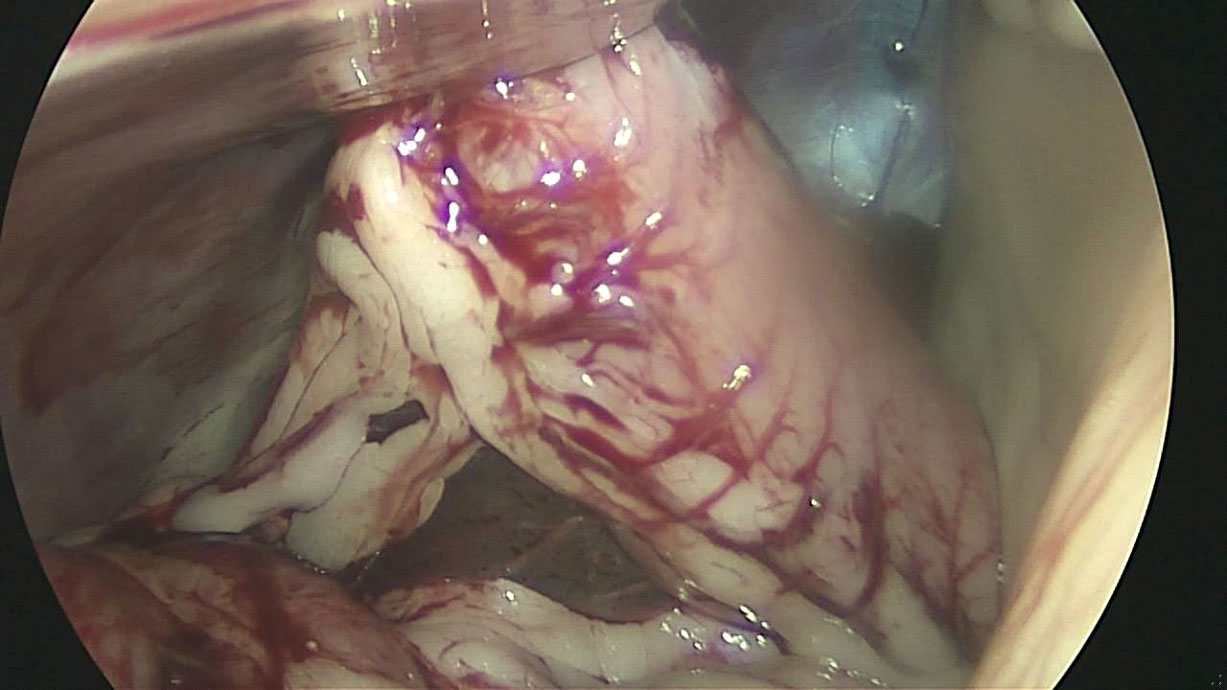|
Laparoscopic Spay
 At the Monroe Animal Hospital, we are excited to offer the option of spaying your dog laparoscopically with Dr. Benjamin Staiger, a mobile surgical specialist. This procedure results in less pain, smaller incisions, decreased post-operative inflammation, little to no bleeding and faster recovery for your pet, and is similar to the procedures performed in people. Laparoscopic Spay, a gold standard, until recently has only been available at primarily specialty hospitals. At the Monroe Animal Hospital, we are excited to offer the option of spaying your dog laparoscopically with Dr. Benjamin Staiger, a mobile surgical specialist. This procedure results in less pain, smaller incisions, decreased post-operative inflammation, little to no bleeding and faster recovery for your pet, and is similar to the procedures performed in people. Laparoscopic Spay, a gold standard, until recently has only been available at primarily specialty hospitals.
WHAT: Laparoscopy is a minimally invasive procedure in which a camera (laparoscope) and instruments are introduced into the abdominal cavity through tiny incisions. It allows a veterinarian to see inside the abdomen without having to make a large cut.
HOW: During a laparoscopic spay the ovaries are removed through three small incisions in which the surgeon places ports allowing the entrance of the camera and instrumentation. The patient’s abdomen is filled with sterile CO2 gas for better visualization. The camera transmits a digital image to a screen in the operating room, allowing full view of the entire abdomen and all organs. After the blood vessels are sealed, the ovaries are transected (cut across) and removed. The surgeon’s hands never enter the abdomen and minimal to no bleeding results.
|

Left photo shows ovary and uterus.
|

Right photo shows ovary being transected.
|
BENEFITS: Because of these smaller incisions, many laparoscopic procedure patients can return to normal activity quicker than those who had standard procedures performed. Since much less bleeding occurs with this procedure, it can also be performed on dogs that are in-heat or recently were. With conventional spay surgeries a 1-2 month waiting period is typically advised.
On deep chested dogs who are higher risk for a life-threatening emergency condition called bloat, gastropexy can also be performed at the same time. This procedure involves attaching the stomach to the right wall of the abdomen to prevent twisting. Dogs who are at risk for Gastric Dilation: German Shepherds, Dobermans, Great Danes, Boxers, Weimeraners, Standard Poodles, Saint Bernards, Mastiffs, Newfoundlands, Greyhounds and setter breeds.

Photo of stomach after Gastropexy
One of the only disadvantages of laparoscopic ovariectomy is the increased cost as the equipment purchase and maintenance cost is much greater than traditional surgical instruments.
In addition to laparoscopic ovariectomy and gastopexy we also can perform laparoscopic cryptorchid neuters, liver biopsies and bladder stone removals (Percutaneous cystolithotomy)
Please call us to schedule minimally invasive surgery at our hospital with Dr. Staiger.
Monroe Animal Hospital
609-655-1717
|
